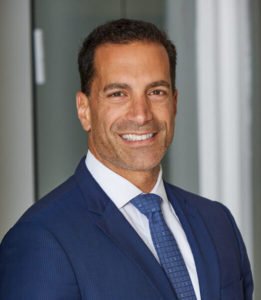
For some people, buying a motorcycle is a lifelong dream. And there’s no better place to make that dream a reality than in beautiful, sunny Florida. After all, who wouldn’t love a long ride along the twists and turns of US Route 41—taking in views of the Atlantic Ocean and the Gulf of Mexico along the way?
If you are ready to invest in a motorcycle here in Miami, FL, you want to hop on the bike and start seeing the best parts of the state immediately. But before you can get your bike out on the road, you need to make sure you’ve followed all of Florida’s licensing requirements.
In this article, we’ll answer some of the most common questions people have about the motorcycle licensing requirements in Miami, FL.
Table of Contents
Who Needs a Motorcycle License in Florida?

Suppose you have a bike with two or three wheels and an engine over the size of 50cc. In that case, you need either a motorcycle endorsement to your traditional license or a specific “motorcycle only” license to use your vehicle.
If you attempt to operate your motorcycle without one of these endorsements, you will be breaking the law.
How Do You Get a Motorcycle Endorsement or License in Florida?
If you are sixteen years or older, you can obtain either an endorsement or a license. Here are the steps to follow for an endorsement:
- Obtain your Class E operator’s driver license
- Complete one of two courses: the Basic RiderCourse or the Basic RiderCourse (updated)
- Obtain your endorsement within one year of completion of the course
- Visit a drivers license office, provide ID, and pay the required fees for endorsement
If you choose to obtain a “motorcycle only” license, the process entails these steps:
- For those between 16 and 18 years of age, hold a learner’s permit for a minimum of one year
- Pass the same exam required for a Class E license
- Complete either of the courses mentioned earlier
- Visit the Department of Motor Vehicles upon completion of the course
- Pay the required fees
Needless to say, with a “motorcycle only” license, you will only be legally able to operate a motorcycle on Florida roads, rather than having the ability to drive standard passenger vehicles as well.
When Do I Need to Renew My Motorcycle Endorsement?
Once you have obtained a motorcycle endorsement on your license, it is good for life. Just make sure you have the endorsement added to your license within one year of taking the Basic RiderCourse. If you miss the deadline, you will have to retake the course.
Do I Need Insurance to Operate My Motorcycle in Florida?
Usually, you do not need insurance to operate a motorcycle on Florida roads. It is not a requirement when registering your vehicle, either.
With that being said, you may be ordered by a court to obtain motorcycle insurance after being charged in a crash that resulted in injuries.
Even if you aren’t required to hold insurance, it’s always a good idea to do so. Insurance coverage can help to protect you if you’re in a motorcycle accident.
Does Florida Law Require Me to Wear a Helmet?
Under Florida law, you are required to wear a helmet when operating a motorcycle within the state. However, if you are eligible for the helmet exemption, you may opt to ride without one.
As of July 1, 2000, the motorcycle helmet exemption law allows those who fall into both of these categories to become exempt from wearing a helmet:
- You are 21 years or older
- You can provide proof you have an insurance policy of at least $10,000 in medical benefits
If you are pulled over without a helmet, the law enforcement officer may ask for proof of your health insurance.
Limited motorcycle medical coverage will also fulfill the terms of the exemption.
Although you may be eligible for the motorcycle helmet exemption, it’s still a good idea to wear a helmet anytime you’re riding. Wearing a DOT-approved helmet is proven to reduce the risk of serious injury for riders of motorcycles. After all, even if you operate your own vehicle safely, you can’t control the behavior of other drivers on the roads.
In fact, the National Highway Traffic Safety Administration estimates that motorcycle helmets have saved more than 25,000 lives since 2002. Wearing a helmet is plain common sense.
How Else Can I Stay Safe on My Motorcycle?
Now that you’re ready to hit the road, there are a few last tips to keep in mind.
Invest in Quality Gear
Beyond helmets, there is a whole world of other motorcycle gear to cover. Because motorcycle riders are at an increased risk of serious injuries, including brain injuries, road rash, and broken bones, safety gear is essential out on the roads in Miami.
As a starting point, every rider should invest in:
- A leather jacket
- Protective pants
- Motorcycle boots
- Race gloves
With these protective pieces on your body, you’ll be better prepared should an accident occur.
Maintain Your Bike
A well-oiled bike is a safe bike. That’s why it’s a good idea to follow your owner’s manual to the letter. Simple habits like regular oil changes and tire upgrades can make your bike easier to control on the road.
Avoid Riding on Wet Roads
Miami gets about 60 inches of rain every year. That’s quite a bit more than the national average. While a wet climate makes for beautiful greenery, it can be dangerous for motorcyclists.
Whenever possible, avoid riding on wet roads. If you have to travel in wet weather, invest in waterproof gloves and reflective rain gear to stay as safe as possible.
When Do I Need an Attorney After an Accident?
Unfortunately, even the most attentive and proactive riders may become involved in an accident. If you’ve been injured due to someone else’s negligence, it’s important to take action right away.
If you’ve been injured in Miami-Dade County, contact the team at Shaked Law Personal Injury Lawyers immediately. Our legal experts will offer the support and guidance that you need as you navigate the difficult terrain of insurance claims and the legal system.
Schedule a free consultation with one of our experienced Miami motorcycle accident lawyers today. We’ll listen to your case’s facts and help you fully understand your options to move forward.
